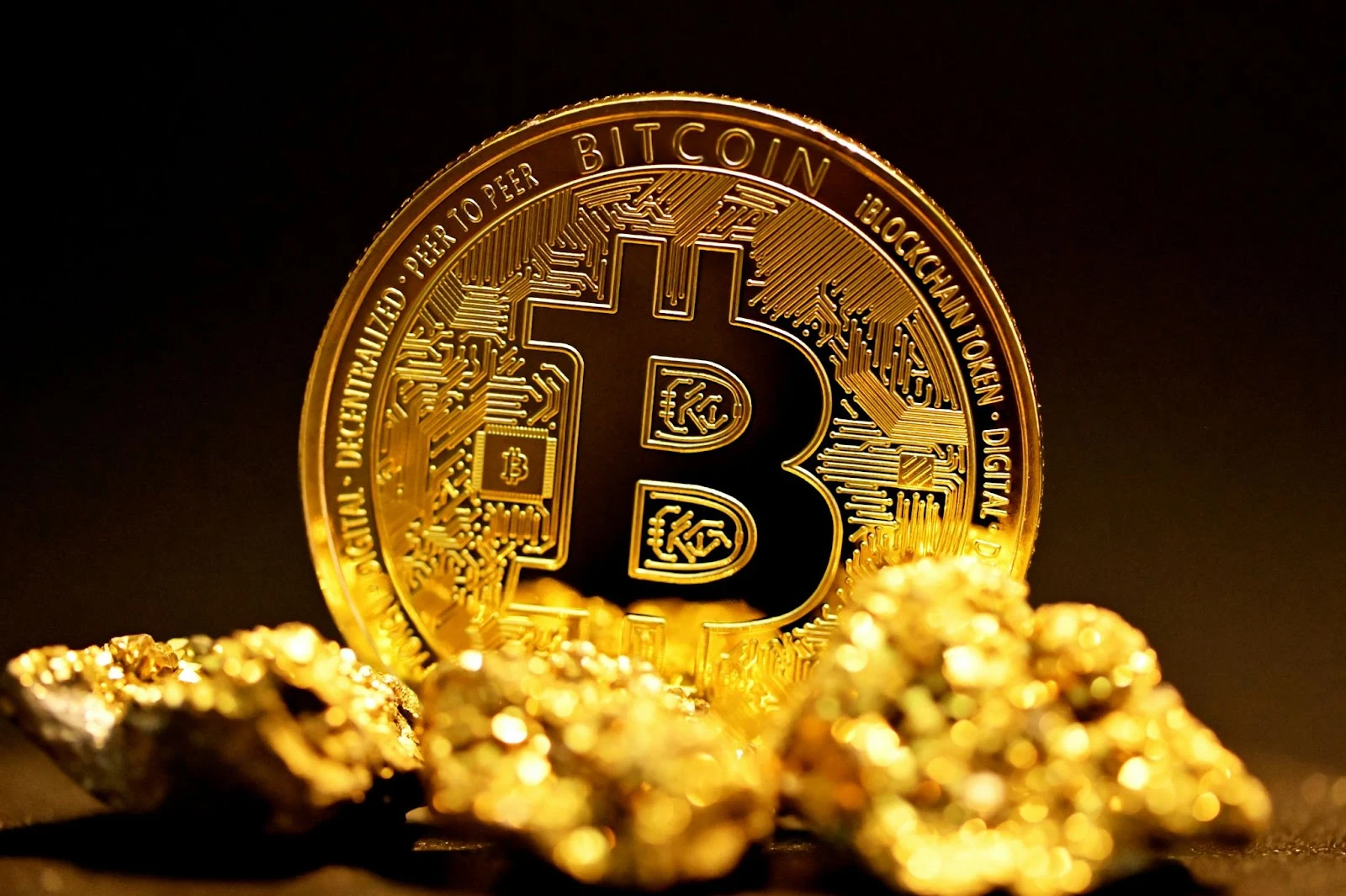Bitcoin’s rise has been nothing short of legendary. From its early days as a niche experiment to its present status as a household name, people have called Bitcoin many things. But as we move further into 2025, one question stands out: “Is Bitcoin still just ‘digital gold,’ or has it become something even greater?” Let’s unravel today’s true role of Bitcoin, separating outdated myths from its evolving reality, and discover where this revolutionary asset might be headed.
What Does ‘Digital Gold’ Mean, and Why Has Bitcoin Been Compared to It?
Bitcoin’s nickname—‘digital gold’—was born from its most compelling trait: scarcity. Like gold, there will only ever be a limited supply of Bitcoin—21 million coins, to be precise. This hard limit, written into its code, means Bitcoin doesn’t suffer from the threat of inflation in the same way fiat currencies do.
But is scarcity the whole story? Gold has functioned as a store of value for thousands of years. Bitcoin, while only about 16 years old, has quickly become a preferred hedge against economic uncertainty, currency devaluation, and financial instability. Its decentralized nature—meaning it’s not controlled by any government or organization—adds another layer of trust.
Bitcoin’s Evolution Since Its Inception
From Cypherpunk Dream to Mainstream Finance
Bitcoin started as an ideological project among early cryptographers and privacy advocates, promising peer-to-peer value transfer without banks or middlemen. Flash forward to 2025, and major investment firms, high-net-worth individuals, and even corporations own Bitcoin. El Salvador made it legal tender, and several other countries are exploring similar moves.
The infrastructure has also matured. From robust exchanges and secure wallets to institutional-grade custody solutions, Bitcoin is now easier and safer to buy, sell, and store than ever before.
Surviving Booms, Busts, and Regulations
Bitcoin’s journey hasn’t been smooth. Booms brought retail frenzy and media coverage, while bear markets tested investor patience. Yet, the asset has outlasted countless obituaries and regulatory crackdowns, emerging resilient each time.
As regulations become clearer, Bitcoin’s appeal is growing with institutional investors. 2025 is seeing tighter compliance requirements, more transparency in crypto markets, and growing regulatory acceptance—important milestones towards mainstream legitimacy.
Bitcoin in 2025: Store of Value, Payment Network, or Financial Infrastructure?
Store of Value: Preserving Wealth Across Generations
Most still see Bitcoin as digital gold—a shield against inflation, economic shocks, or restrictive government policies. In nations experiencing currency crises, people continue flocking to Bitcoin as a lifeboat for their savings.
Long-term investors appreciate its transparent and immutable ledger, knowing exactly how much Bitcoin exists and where it sits on the blockchain. In an age of uncertainty and growing sovereign debt, Bitcoin’s role as a wealth-preservation tool is clearer than ever.
More Than a Store of Value? The Case for Payments and Beyond
Recent years have seen a new wave of Bitcoin adoption—this time as a payment rail. Technologies such as the Lightning Network have slashed transaction costs and boosted speeds, enabling near-instant, low-fee transfers worldwide. Major companies now accept Bitcoin for goods and services, while remittance providers and fintech startups integrate it for cross-border payments.
Beyond money transfer, developers are building on the Bitcoin blockchain. Trends like tokenization, smart contracts, and decentralized finance (DeFi) on Bitcoin are gaining traction. Innovative protocols enable NFTs, asset-backed tokens, and even decentralized identity schemes. Bitcoin’s use case is broadening.
A Hedge, an Asset, and a Platform
As 2025 unfolds, Bitcoin exists at a unique intersection:
- Digital Gold: Still the go-to store of value for millions, especially in volatile economies.
- Payment Network: Supported by Lightning and Layer 2 solutions, Bitcoin is becoming a practical payment alternative.
- Financial Infrastructure: The integration of smart contracts and tokenization is pushing Bitcoin into new realms, raising the question: is it still just digital gold?
Bitcoin vs. Other Cryptocurrencies: Is the Original Still King?
Over the past decade, thousands of cryptocurrencies have emerged—Ethereum, Solana, and others, each promising faster transactions, more features, or greater decentralization. Yet, Bitcoin remains the most valuable and widely held digital asset.
Its first-mover advantage, robust security, and unparalleled brand recognition grant it a significant edge. While altcoins attract attention for their utility, none have matched Bitcoin’s resilience or trust at a global scale.
How Global Economics and Regulation Shape Bitcoin in 2025
Macro Trends Fueling Adoption
Rising inflation, mounting national debt, and ongoing geopolitical uncertainty have strengthened Bitcoin’s narrative as an alternative store of value. Investors worldwide are diversifying with digital assets, seeing them as vital components of modern portfolios.
Additionally, in countries with unstable currencies, Bitcoin’s borderless, censorship-resistant nature is not just appealing—it’s practical. People use it for everyday transactions and capital preservation alike.
Regulatory Clarity: A Double-Edged Sword?
Global governments are embracing the need to regulate crypto. While early “Wild West” days have ended, the resulting clarity is making traditional investors more comfortable. With stricter rules, Bitcoin trading and custody solutions are more secure for users and institutions.
Still, some regions choose to ban or restrict crypto activity, citing economic sovereignty or consumer protection. The global regulatory landscape remains patchwork, but the overall trend favors increased oversight—bringing legitimacy but sometimes limiting innovation.
What Are the Risks for Bitcoin Going Forward?
No asset is without risk, and Bitcoin faces unique challenges.
- Volatility: Price swings remain sharp, sometimes scaring away risk-averse investors.
- Regulatory Uncertainty: While improving, legal frameworks can change quickly, affecting adoption or use.
- Technological Risks: Upgrades and forks occasionally threaten network stability or spark community rifts.
- Environmental Concerns: Bitcoin mining’s energy usage remains a hot topic, though advancements in green mining and renewable integration offer solutions.
Despite these hurdles, Bitcoin has demonstrated remarkable resilience, adapting to every challenge since its creation.
What’s Next? Bitcoin’s Future Beyond ‘Digital Gold’
So, is Bitcoin still just ‘digital gold’ in 2025? The answer is yes—but also much more. It is a proven store of value, widely respected and increasingly integrated into mainstream finance. But it is also evolving into a dynamic payment system and a foundational technology for new financial solutions.
As adoption grows, Bitcoin’s impact will likely stretch even further. Empowering the unbanked, streamlining global commerce, and reshaping financial infrastructure are not far-fetched ideas anymore. Developers and entrepreneurs are building atop Bitcoin’s secure foundation, and new applications emerge annually.
Bitcoin’s story is far from over. Its next chapters will be defined by innovation, adaptation, and a relentless push toward a freer, more open financial landscape.
Conclusion: Should You See Bitcoin as Digital Gold or Something More?
Bitcoin in 2025 remains ‘digital gold’—a unique, limited-supply asset trusted for storing and preserving wealth. But limiting it to this label misses the bigger picture. Thanks to ongoing innovation, Bitcoin is fast becoming a flexible payments system and a digital infrastructure layer, powering asset transfers, contracts, and more.
The future? It’s broad, exciting, and anything but certain. Staying informed and engaged will be your best strategy.
Ready to Explore Bitcoin’s Next Chapter?
If you’re thinking about adding Bitcoin to your portfolio or exploring its growing applications, there’s never been a better time. Whether you see it as digital gold or something transformative, understanding its potential now could make all the difference tomorrow.






